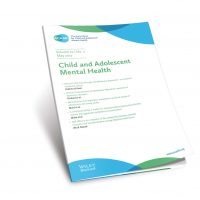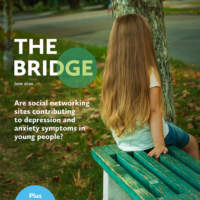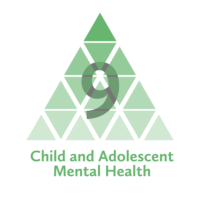Exercise and physical activity
-

Physical Activity Interventions and Adolescent Mental Health
In this Papers Podcast, Gabrielle Hale discusses her CAMH journal review paper ‘Physical activity interventions for the mental health and wellbeing of adolescents: a systematic review’. Gabrielle is the lead author of the paper.
Read more -

Patterns of maladaptive exercise behavior from ages 14–24 in a longitudinal cohort
Open Access paper from the JCPP – ‘The current study clarifies processes that influence exercise-related risk in adolescence and young adulthood, including the frequency with which young people transition between engaging in exercise for weight loss and experiencing negative consequences of this behavior.’ Katherine Schaumberg (pic) et al.
Read more -

Mental health outcomes of the Daily Mile in elementary school children: a single-arm pilot study
Paper from the CAMH journal – “This study is the first to examine TDM (a daily one mile outdoor run/walk performed at a self-selected pace during school hours) on mental health, self-esteem and self-perceived competence of elementary schoolchildren”. Anke Arkesteyn et al.
Read more -

June 2020 – The Bridge
Includes ‘Are social networking sites contributing to depression and anxiety symptoms in young people?’
Read more -

Can boosting physical activity improve ADHD symptoms in preschoolers?
“Our study findings highlight the possibility that MVPA might be a tool that can be used to reduce preschoolers’ ADHD behaviours and associated impairments, especially for young children at risk for ADHD” Betsy Hoza.
Read more -

Most cited CAMH paper #9 of 25: Review: A systematic review of the impact of physical activity programmes on social and emotional well‐being in at‐risk youth
David R. Lubans, Ron C. Plotnikoff, Nicole J. Lubans.
Read more
Key Practitioner Message includes; Clinicians working with at‐risk youth are encouraged to consider specific physical activity programmes to support social and emotional well‐being and general health in this group -

The ‘obesogenic’ environment of adolescent inpatient units: A call for action to support the promotion of better physical wellbeing
The term ‘obesogenic’ has been used to describe the unique set of circumstances people experience on mental health inpatient units which results in a propensity for weight gain. Find out about the implications and interventions.
Read more -

Can physical exercise improve tics and associated mental health difficulties in Tourette syndrome? The jury is out
Physical exercise is increasingly being recommended as part of management for children and young people with mental health problems. There is a growing evidence base that shows physical exercise is associated with improvements in functioning for conditions such as attention deficit hyperactivity disorder (ADHD), although studies are small, they are signifcant.
Read more -

Low activity levels affect child mental development
High activity levels (AL) in early childhood are associated with sub-optimal social and behavioural outcomes, but whether low AL have negative outcomes is unclear. Now, a study conducted by researchers at Boston University has demonstrated that AL are curvilinearly related to mental development.
Read more